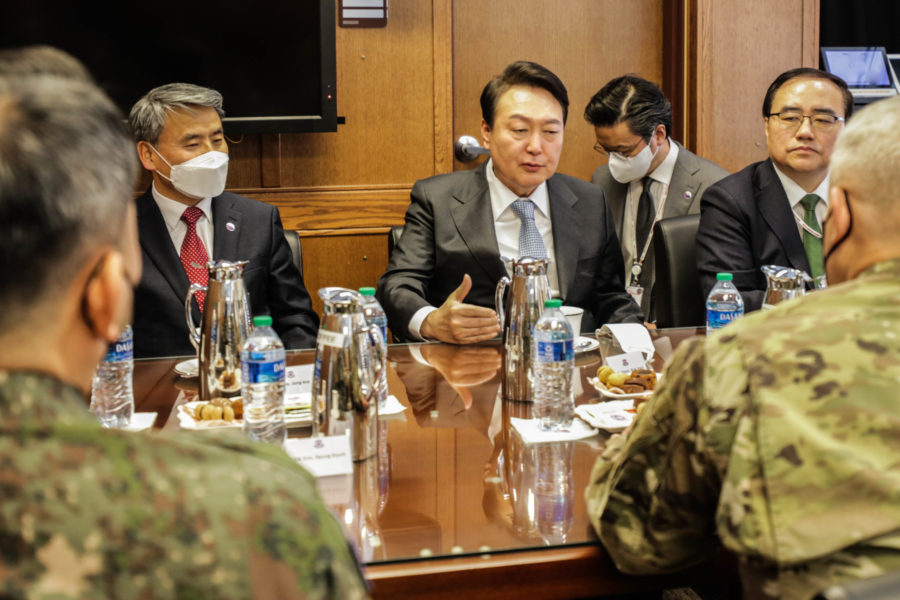With North Korea increasingly testing long-range missiles and South Korea agitating for its own nuclear deterrent, a new Heritage Foundation report recommends the U.S. work with Seoul to ease its concerns and recommit to the peninsula’s defense.
Bruce Klingner, a Heritage senior research fellow, said in his Feb. 23 report that the South Korean government needs a reassurance. “Seoul is pushing for more tangible signs of U.S. commitment to the defense of South Korea, greater involvement in U.S. planning for potential use of nuclear weapons in Korean contingencies, and a role in nuclear decision-making during a crisis,” Klingner wrote. “Washington seems willing to be more forthcoming in revising the highly sensitive nuclear relationship but retains clear red lines.”
Klingner said Washington and Seoul should establish a “bilateral nuclear planning group,” which might later be expanded to include Australia and Japan in order to more comprehensively address threats in the Indo-Pacific region. He also advocated for joint training parameters and discussions on potential future strategic weapons deployment, including dual-use aircraft and aircraft carrier battle groups.
“It seems that South Korea would perceive anything less than creating a new body … as insufficient,” Klingner wrote. “Increasing South Korean involvement would be consistent with the U.S. Nuclear Posture Review, which pledged ‘stronger extended deterrence consultation emphasizing a cooperative approach between the United States and Allies in decision making related to deterrence policy, strategic messaging, and activities that reinforce collective regional security.’”
If South Korea were to pursue its own nuclear program, it could be highly disruptive, Klingner said. South Korea would have to withdraw from the Nuclear Non-Proliferation Treaty, and that could upset a host of other dependencies that could destabilize the region, including denuclearization policies that underlie 11 U.N. resolutions that enable sanctions against North Korea for its pursuit of nuclear arms.
“Either action would require the [Nuclear Suppliers Group] to curtail supply of fissile material to South Korea’s civilian nuclear energy program, which accounts for 30 percent of the country’s electricity,” he wrote. “The NSG could also request the return of all previously provided fissile material.”
In addition, the report notes that such a program would violate the Atomic Energy Act and the “nuclear cooperation agreement” between the U.S. and South Korea. And it wouldn’t stop there.
“South Korea developing nuclear weapons could lead to calls in Washington for the withdrawal of U.S. forces, either due to anxiety of being drawn into South Korean escalatory actions of perceptions that Seoul could now go it alone since it no longer trusted the American commitment,” Klingner noted.
The subsequent reaction of China, he adds, would be more devastating than the sanctions China imposed after the deployment of South Korea’s THAAD system in 2016.
Klingner’s report said “deft management” is crucial for the U.S. and South Korea, with the U.S. fostering trust to alleviate South Korea’s concerns and for Seoul to “manage public expectations” at the same time.
“If North Korea continues its provocative actions, [South Korean] President [Suk Yeol] Yoon will face greater pressure to build an independent nuclear deterrent,” he writes. “Dissatisfaction with U.S. efforts to strengthen extended deterrence or any perceived wavering in America’s commitment to defend South Korea would intensify South Korean advocates’ calls for indigenous nuclear options.”

